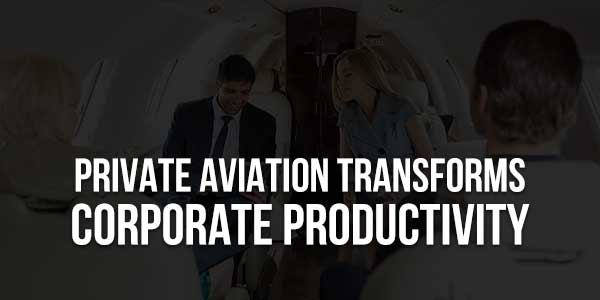
Private aviation has long been associated with exclusivity and prestige, but its impact extends far beyond luxury perks. For forward-thinking organisations, access to private aircraft represents a strategic asset that can radically reshape workflows, streamline travel, and unlock greater team performance. Private air travel empowers executives and project teams to reclaim valuable hours, safeguard sensitive information, and accelerate corporate objectives by offering an alternative to rigid commercial schedules, congested terminals, and lengthy layovers. Let’s explore how private aviation can catalyse peak productivity across every level of an enterprise.
Table of Contents
Maximising Time Efficiency:
One of the most tangible productivity gains from private air travel lies in time optimisation. With direct routing and access to smaller airports closer to final destinations, teams avoid detours through major hubs that can add hours of ground transfers, security lines, and boarding waits. Employees step off the aircraft and head straight into meetings or site visits without missing a beat. When travel transitions from a day-long ordeal into a brief transfer, professionals arrive refreshed and ready to focus on strategic tasks rather than catching connecting flights or enduring crowded terminals.
Embracing Flexible Scheduling:
Corporate initiatives rarely adhere to fixed schedules. Whether last-minute board meetings, site inspections, or cross-regional workshops, private aviation responds instantly to evolving agendas. Companies can adjust flight times on short notice, carve out midday returns for afternoon calls, or maintain overnight presence without juggling multiple hotel changes. This level of scheduling agility allows teams to synchronise travel with critical project milestones, turning every hour into an opportunity to advance negotiations, finalise proposals, or conduct on-site assessments. The result is a streamlined rhythm of business that adapts seamlessly to pressing demands.
Safeguarding Confidentiality and Privacy:
In high-stakes negotiations or sensitive product launches, information security is paramount. Private aircraft cabins function as confidential conference rooms in the sky—far from prying ears, crowded lounges, or overheard conversations. Teams can review confidential documents, conduct strategy sessions, and brief new partners in complete privacy. For organisations bound by regulatory compliance or proprietary research, this level of discretion shields vital intel from external exposure. The secure travel environment not only protects corporate secrets but also fosters a climate of trust among stakeholders and clients.
Fostering Team Synergy:
Corporate retreats or cross-departmental collaborations often falter under the strain of segmented travel arrangements. By consolidating personnel aboard a single private jet, companies cultivate concentrated interaction that stretches beyond formal agendas. Shared flights become incubators for idea exchanges, spontaneous problem-solving, and team bonding. As colleagues debrief between stops or co-pilot the journey’s logistics, relationships deepen and collective morale rises. This heightened collaboration carries forward into boardrooms and brainstorming sessions, where aligned teams deliver sharper insights and more cohesive strategies.

Elevating Client Engagement:
Welcoming key clients aboard a private aircraft sends a powerful message of dedication, respect, and responsiveness. Exclusive travel arrangements convey that a company values a client’s time and experience, laying a foundation of premium service from the moment they step on board. En route, executives can lead immersive presentations, walk through tailored proposals, or simply engage in meaningful dialogue uninterrupted by commercial airline protocols. This bespoke approach to hospitality sets the tone for enduring partnerships built on mutual esteem.
Driving Operational Simplicity:
Corporate travel administration often requires complex coordination across ticketing platforms, loyalty programs, flight schedules, and expense policies. Private aviation consolidates these moving parts under a unified charter or membership model. One invoice encapsulates crew services, ramp fees, catering, and ground support; one point of contact manages changes and logistics. Travel managers regain bandwidth to optimise broader supply-chain concerns rather than troubleshoot delayed flights. As the travel desk transforms into a strategic planning hub, operational workflows become leaner, costs become more predictable, and executives are better informed.
Accelerating Strategic Decision-Making:
In today’s fast-moving markets, delayed decisions can translate into missed opportunities. Private aviation compresses the time between site visits, executive briefings, and stakeholder alignments. A leadership team can survey multiple facilities in a single business day, immediately analyse findings over lunch in the sky, and finalise action plans upon landing. This compressed iterative cycle empowers organisations to move from data gathering to decision execution with unprecedented speed. The ability to swiftly marshal insights into concerted initiatives becomes a critical competitive differentiator.
Conclusion
When companies integrate private aviation into their travel ecosystem, they unlock a spectrum of productivity enhancements that ripple across the enterprise. From reclaiming dozens of hours otherwise lost in transit to safeguarding proprietary information, fostering cohesive teams, and delighting clients, the benefits extend well beyond the aircraft cabin. As markets demand ever-faster turnarounds and pinpoint decision-making, private air travel stands out as more than a perk—it serves as a strategic lever that elevates operational excellence and drives sustainable growth.

 About the Author:
About the Author:












Be the first to write a comment.